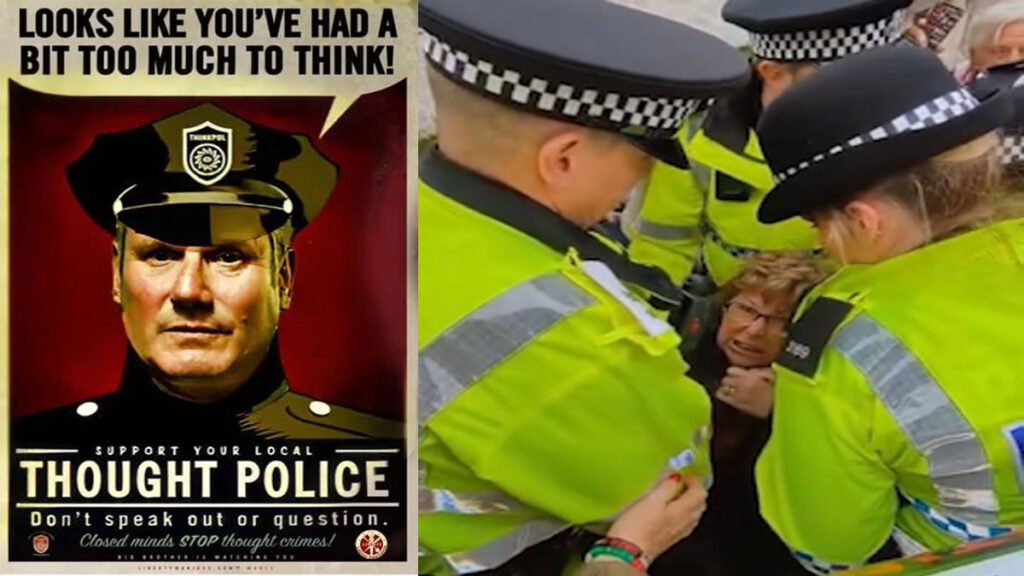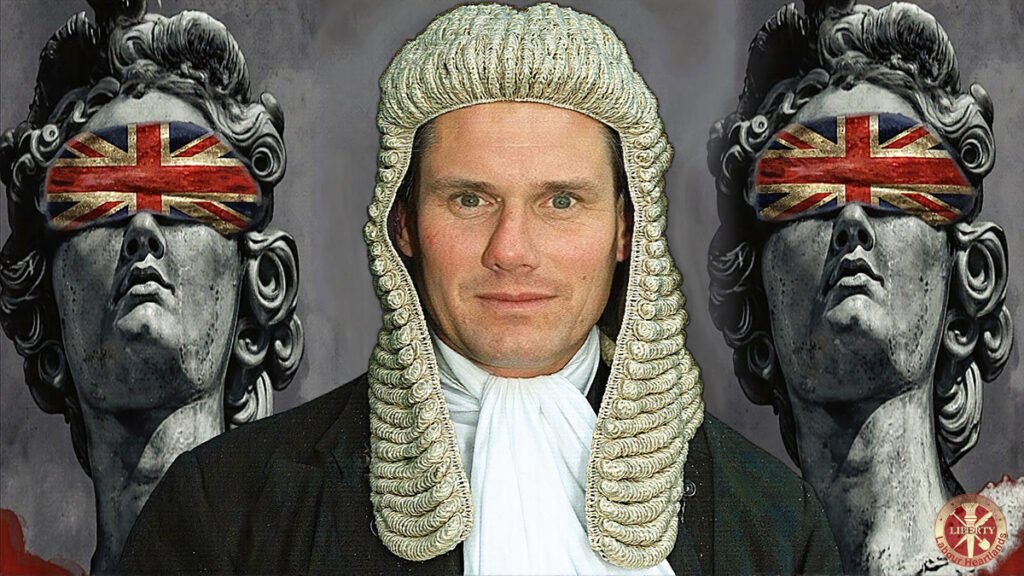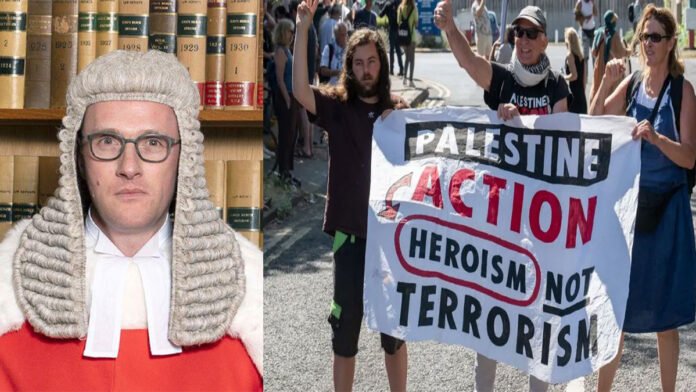Palestine Action has won permission to challenge its controversial ban by the UK government under terrorism legislation.
In a rare glimmer of judicial sanity, the High Court has granted Palestine Action permission to challenge the Labour government’s authoritarian decision to proscribe it as a terrorist organisation. This isn’t just a procedural victory; it’s a vital pushback against an authoritarian government that is wielding the bludgeon of the state against legitimate protest.
The ruling from Mr Justice Chamberlain is a direct rebuke to Home Secretary Yvette Cooper’s move to ban the direct-action group. The ban, rushed through after activists caused damage at RAF Brize Norton, effectively criminalises support for Palestine Action, carrying a potential 14-year prison sentence. It’s a sledgehammer designed to smash not just a single organisation, but the very principle of dissent.
The judge’s reasoning should send a chill down the spine of every minister in Whitehall. He warned of a “recipe for chaos” if the ban wasn’t reviewed, with courts across the country potentially reaching different conclusions about its legality. Mr Justice Chamberlain pointed out the sheer absurdity of the government’s position: the semi-secret official appeal process is so slow that hundreds of the 200 people already arrested for supporting the group could face prosecution before the ban itself is properly scrutinised.
In short, the High Court has been forced to step in to prevent the government’s overreach from collapsing the justice system into authoritarian and judicial chaos.
A Government at War With Itself

Thanks to documents disclosed in court, we now have a sickeningly clear picture of how this appalling decision was made. This wasn’t a swift, decisive move to protect national security. It was the culmination of an eight-month argument within a state apparatus that knew full well the dangers of what it was doing.
The government’s own papers reveal that police chiefs, while frustrated with Palestine Action, warned the Home Office that using terror laws could look like “state repression” and the use of “draconian counter-terrorism legislation”.
The Foreign Office was even more explicit, warning that international partners view Palestine Action’s work as “activism and not extremism or terrorism” and that a ban could be seen as a gross “overreaction”.
Most damningly, the Home Office’s own analysis predicted that proscription “would almost certainly be perceived as evidence of bias against the British Muslim community in favour of British Jews and Israel more broadly” and could “introduce new social cohesion challenges.”
Let that sink in. The government was explicitly warned by its own police, its own diplomats, and its own analysts that this course of action was draconian, an overreaction, and would inflame community tensions. They did it anyway.
The Cold, Hard Face of Starmer’s Authoritarianism

This decision isn’t merely a dangerous escalation against one particular group. No, this is a calculated, chilling assault on the very bedrock of the British tradition of dissent.
Let’s be excruciatingly clear: protest, even when inconvenient and disruptive, is not terrorism. It is the messy, uncomfortable, absolutely essential engine of democratic progress. Without it, we wouldn’t possess the meagre rights we cling to today. From the Peterloo Massacre to the Chartists, the suffragettes who crossed all the lines, down to the indomitable women of Greenham Common, and the millions who marched against the Iraq War. They all broke laws, crossed lines, and royally annoyed the establishment. This Labour government, in its profound wisdom, would have had them all branded as terrorists.
The irony is stomach-turning. This government was founded on a protest vote against fourteen years of Tory corruption and overreach. It has taken little over a year for it to become the very thing it replaced.
Adding insult to the irony cuts particularly deep, given Keir Starmer’s past positions. In 2003, the future Prime Minister defended activists who broke into RAF Fairford to disrupt US bombers en route to Iraq, arguing their actions were not merely justified but necessary to prevent war crimes. Today, Prime Minister Starmer presides over legislation that would brand those same activists as terrorists deserving fourteen-year sentences.

This represents more than political evolution; it constitutes moral inversion. The man who once argued that sometimes conscience demands law-breaking now criminalises conscience itself when it threatens comfortable arrangements with international arms dealers. The barrister who recognised legitimate protest against war crimes now deploys terrorism legislation against identical protests. Such transformations occur not through democratic mandate but through institutional capture by interests that profit from perpetual conflict.
The stakes could not be higher. If Palestine Action’s challenge fails, if terrorism legislation successfully expands to encompass all forms of effective protest, British democracy will have formally transitioned from representing popular will to protecting elite interests through state violence. The transformation from consent-based to coercion-based governance will be complete.
Yet the High Court’s willingness to hear this challenge suggests that even Britain’s compromised institutions retain some capacity for democratic self-correction. The judicial recognition that fundamental rights face threat, that governmental actions require urgent scrutiny, that legal chaos results from executive overreach, indicates potential limits to authoritarian drift.
This High Court challenge is a vital foothold. But make no mistake, for a Labour Party so quick to jettison its principles in favour of the iron Heel, this is a battle for the very soul of what it means to live in a democracy.
Final Word…
Palestine Action’s court victory may seem procedural. But it’s far more than that. It’s a crucial stand against the criminalisation of conscience, against a government more interested in appeasing foreign allies and arms dealers than defending the right to protest war crimes.
If this new Labour government wants to maintain any credibility, it must reckon with a simple truth: those who expose injustice are not the threat. It’s the institutions that silence them.
Support Independent Journalism Today
Our unwavering dedication is to provide you with unbiased news, diverse perspectives, and insightful opinions. We're on a mission to ensure that those in positions of power are held accountable for their actions, but we can't do it alone. Labour Heartlands is primarily funded by me, Paul Knaggs, and by the generous contributions of readers like you. Your donations keep us going and help us uphold the principles of independent journalism. Join us in our quest for truth, transparency, and accountability – donate today and be a part of our mission!
Like everyone else, we're facing challenges, and we need your help to stay online and continue providing crucial journalism. Every contribution, no matter how small, goes a long way in helping us thrive. By becoming one of our donors, you become a vital part of our mission to uncover the truth and uphold the values of democracy.
While we maintain our independence from political affiliations, we stand united against corruption, injustice, and the erosion of free speech, truth, and democracy. We believe in the power of accurate information in a democracy, and we consider facts non-negotiable.
Your support, no matter the amount, can make a significant impact. Together, we can make a difference and continue our journey toward a more informed and just society.
Thank you for supporting Labour Heartlands









